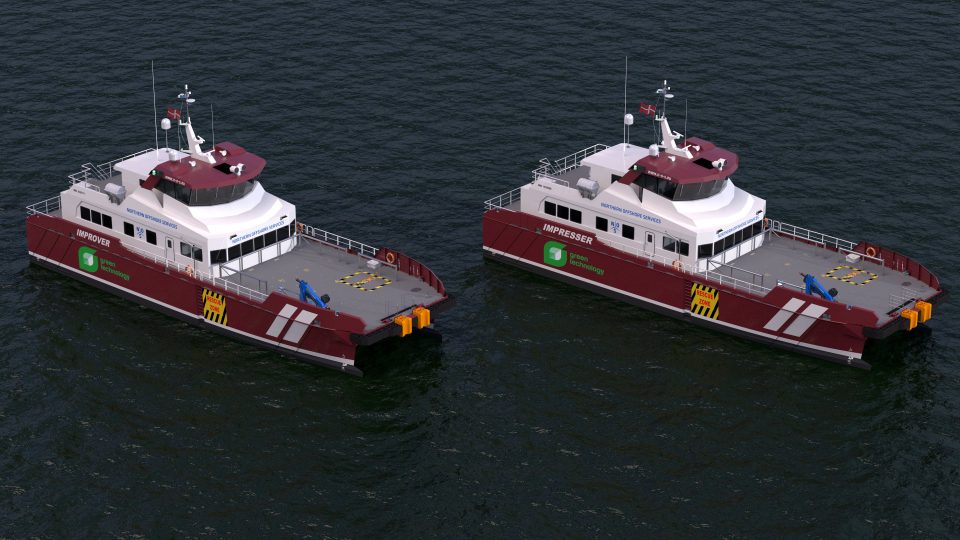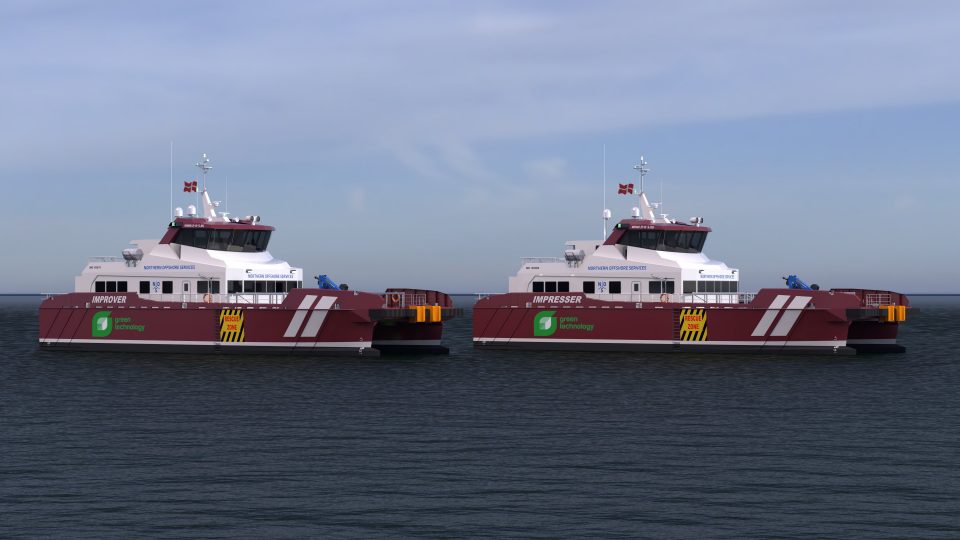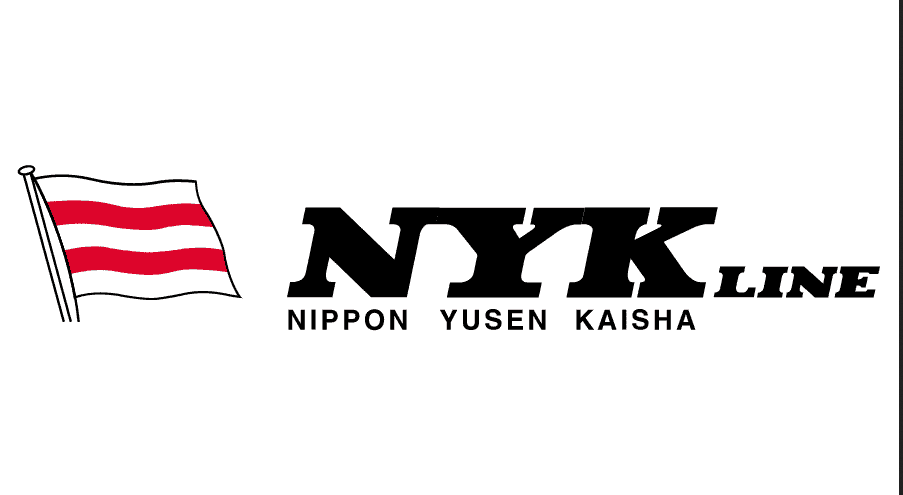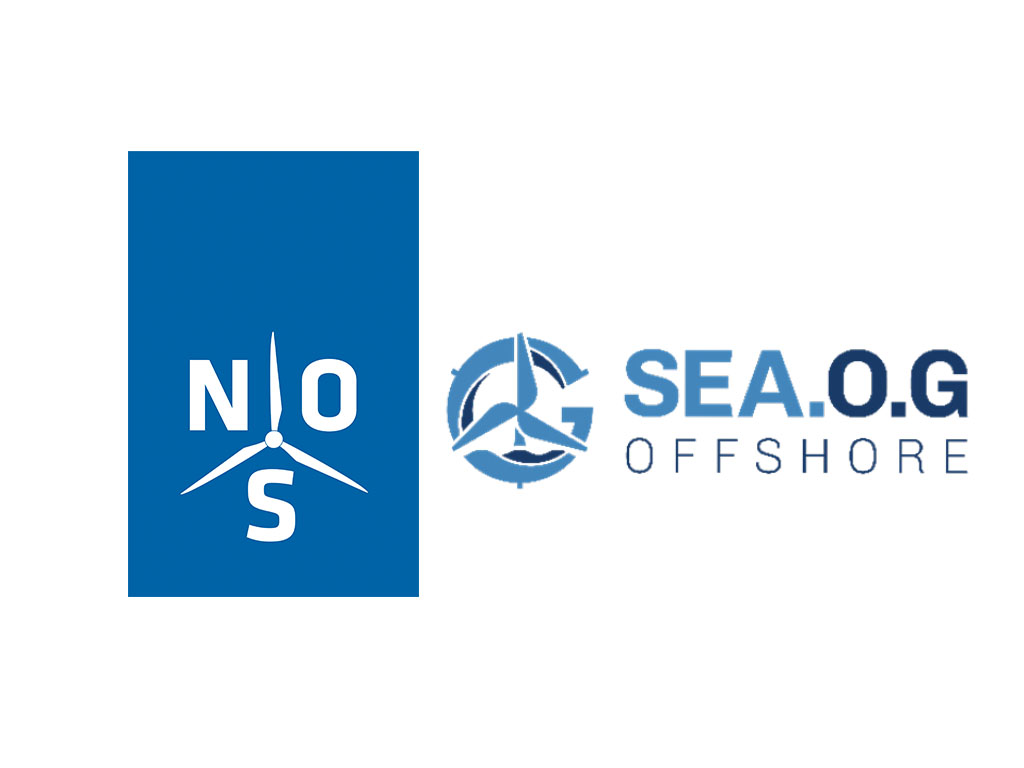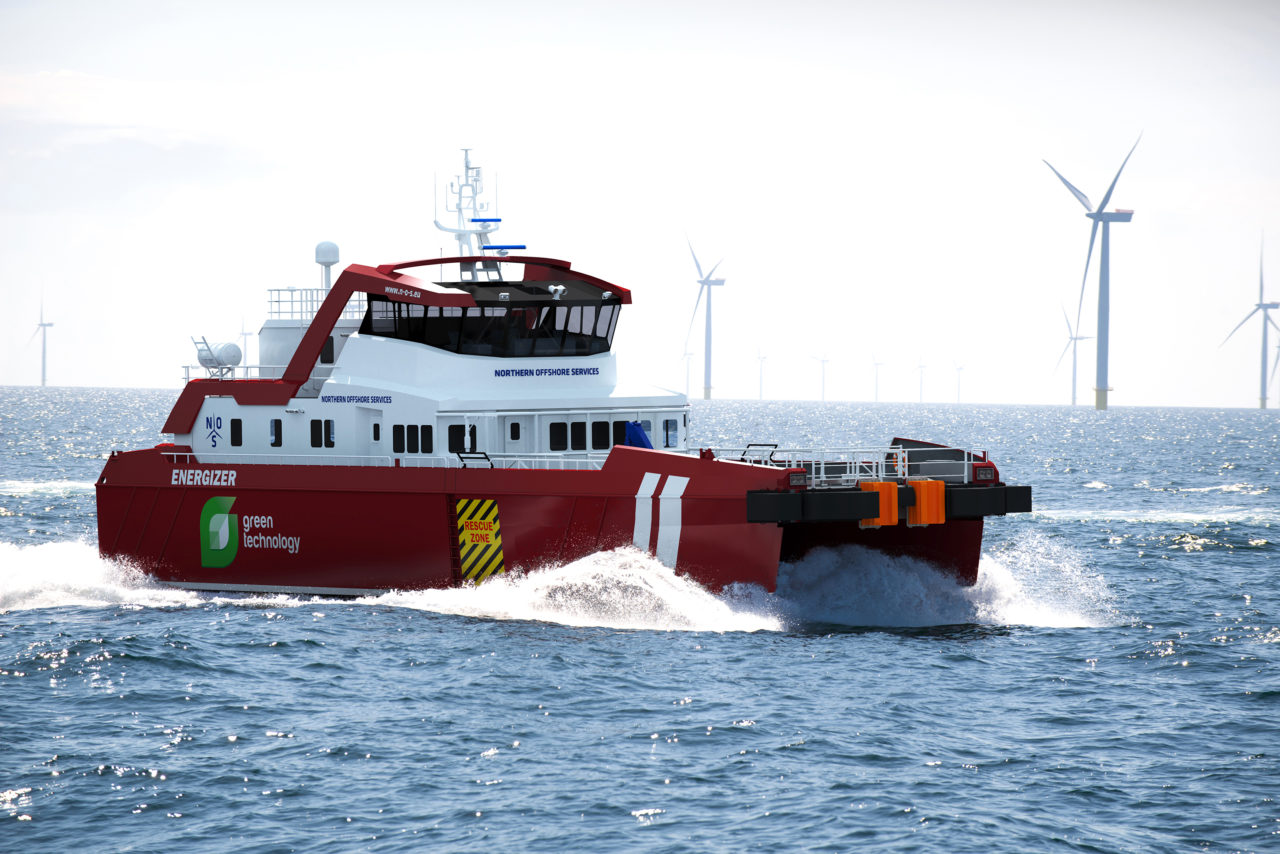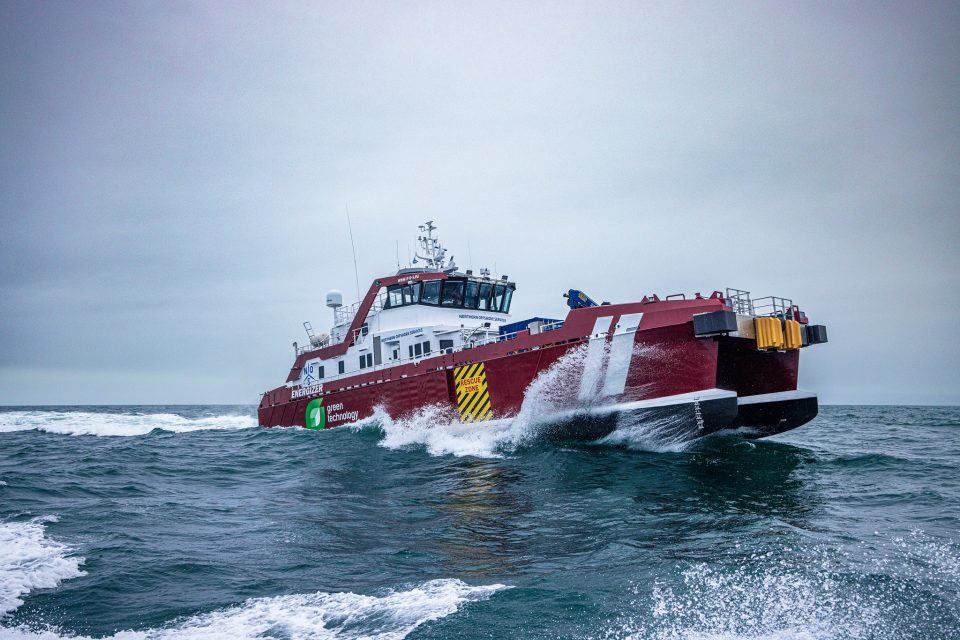Volvo Penta and Northern Offshore Services (N-O-S) are continuing their successful collaboration on a new project to advance marine operations that support the offshore wind industry. N-O-S will use the powerful and flexible Volvo Penta IPS Professional Platform on its crew transfer vessels (CTVs).
The Volvo Penta IPS Professional Platform includes a pioneering new propulsion design with a dual power input concept that enables the utilization of different combinations of power sources from combustion engines running on renewable fuels to fully electric or hybrid solutions. This flexibility means that vessels can be easily adapted to future energy requirements.
N-O-S is a key innovator in the offshore wind industry and is at the forefront of its expansion. The industry capitalizes on the powerful winds in marine environments to activate wind farms located at sea, where there is less direct disturbance to people and landscapes. N-O-S runs a fleet of around 60 CTVs that work year-round to provide customized, effective and efficient solutions to support offshore wind farms and has a strong legacy of industry leadership.
“The complexities of working in the environment of the offshore wind industry present unique opportunities for innovation,” said David Kristensson, Group CEO of Northern Offshore Services. “CTVs benefit from new technologies that make the work more efficient and more precise, which in turn could make operations easier, safer and more comfortable for crew and technicians. They also hold the potential for more sustainable operations, which is a priority for this transformative industry.. At N-O-S we want to lead the way, and we have high expectations of our new next generation CTVs, the I-Class series.”
Strong growth predicted
According to trade association WindEurope, offshore wind capacity is required to grow by 25 times to meet its 2050 net zero goal. Statistics from the organization show that compared to the 25 gigawatts of power available from offshore wind farms now, power will need to increase to over 110 gigawatts in the next ten years. This could be accomplished through the construction of additional turbines or larger turbines that are farther offshore, which require CTVs to be larger, stronger, more powerful and more flexible. The ability for CTVs to adapt to new power sources will be crucial for future growth and sustainability.
“It is a significant advantage in this industry to develop solutions that are future-proof,” said Johan Inden, president of Volvo Penta Marine. “The design of the Volvo Penta IPS Professional Platform enables companies to adapt to evolving energy requirements. We are proud to build on one of our partnerships and work with N-O-S on this collaboration to transform the work of CTVs to become efficient, as well as integrating features that improve the operator and crew experience.”
Efficiency and reliability are key
Efficiency and reliability are critical to ensuring seamless CTV operations. At sea, CTVs are positioned towards wind turbines. They are used to ensure the safe transfer of technicians under challenging sea conditions. The proximity to the turbines is critical for reducing risk and enhancing operational efficiency. CTV crew use their years of experience and expertise to keep vessels steady.
The dual power input concept of the Volvo Penta IPS professional platform is supported by a smart Eco Mode feature that will automatically manage and optimize the use of power based on real-time needs during operation. This gives the potential to operate a vessel with unrivaled new levels of efficiency and leads to extended service and maintenance intervals. In addition to reducing fuel consumption across a large portion of the drive cycle, Eco Mode is visible through an interface at the helm. This makes it easy for the captain or operator to monitor.
Intelligent features of the Volvo Penta IPS Professional Platform, like Volvo Penta Assisted Docking, Dynamic Positioning and Volvo Penta’s professional-level Glass Cockpit helm display, make manual operation easier.
The Volvo Penta IPS professional platform is compact and frees up valuable onboard space — and it has been shown to reduce perceived noise by up to 50% . The forward-facing propeller design and efficient dual power input also lower the vibration levels onboard. Such enhancements are significant for operators who spend extended periods at sea, facing the full force of the elements. The system could substantially elevate the overall experience for CTV operators, crew and technicians.
“The first on-water application of the new Volvo Penta IPS professional platform in offshore wind has great potential to improve the CTV work that is supporting such a rapidly expanding sector,” Inden said. “N-O-S and Volvo Penta have a longstanding, strong partnership, and we share a vision of innovation that moves the sector toward more efficient and streamlined operations. We hope these on-water applications lead to new industry standards, and ultimately, a more sustainable future.”
Media contact N-O-S:
David Kristensson, Group CEO
david.kristensson@n-o-s.eu
Media contact Volvo Penta:
Charlotta Cronborg
charlotta.cronborg@volvo.com
